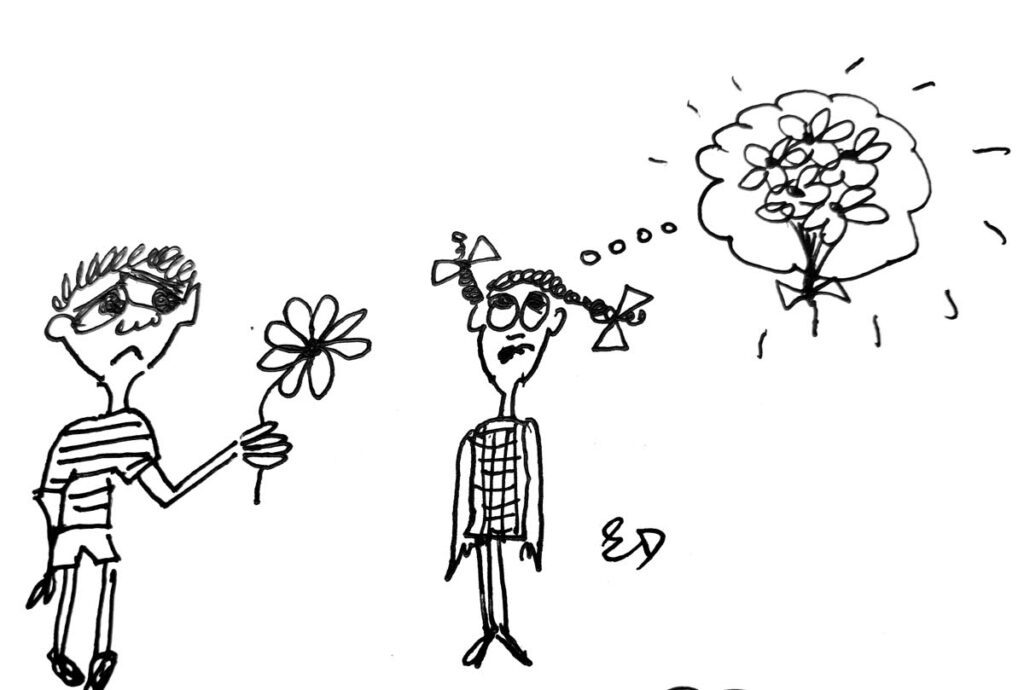Address shame to help curb violence

Valentine’s Day is three days away. Whenever it rolls around, I remember the occasion on which I helped out at a friend’s flower shop in Trinidad, to see what "commercial V-Day" would be like.
While welcoming customers and helping with sales, what stood out to me most (apart from how stressed, pressured and even scared many – but not all – men felt at the concept of "having" to buy flowers) was that many did not know how to express their feelings – or what feelings to express – to their partners.
The ones who seemed "stuck" and afraid had female partners. Quite a few men asked me to suggest words to be written on the cards they were purchasing.
This was many years ago, so I cannot recall the exact details, but I asked basic questions that helped them to unearth their honest sentiments, however simple.
Then there were others who wanted to use song lyrics. I recall one man saying: “Put the lyrics from that Brian McKnight song.”
Apart from not wanting to, or being able to write their own words, why did many of these men not want to use their own handwriting? Was it fear of their penmanship not looking good? Were they concerned that they would spell something incorrectly? Were they too nervous to hold the pen?

The latter is possible, as one or two of them had come in literally sweating and mopping their brows.
As simple as the above sounds, one could surmise that not wanting to write their own messages points to a deep feeling of not being good enough.
It is highly possible that the sense of inadequacy is an ongoing feeling for many men in TT – one that can result in feelings of embarrassment.
I remember Trinidadian UK-based love/relationship coach Leah Almeida saying years ago something to the effect that at the root of dysfunction in many human relationships is a sense of shame in men and fear in women.
I think the two feelings are intertwined. When one feels ashamed there may be a fear of expressing it. When one feels fear, there may be shame in being perceived as vulnerable.
Those patterns originate in childhood and are "fed" through the stereotypical ways in which society believes it must raise boys as opposed to girls.
Shame arises when one feels unworthy or "wrong" in some way. For example, a boy may save up his pocket money to buy a gift for a little girl he likes and she drily says something from her "mouth of a babe" like: “Is that all?” or “I don’t like it.” The seed of the "What-I-give-and-who-I-am-isn’t-good-enough" tree may be planted in the boy.
A little boy may have a full bladder but is scared or embarrassed to ask the teacher for permission to go to the toilet, eventually leading to other children laughing, pointing and teasing: “He pee his pants!”
The seed of shame is planted. His little mind determines that he must keep things in and that to release is bad or wrong. Maybe he wants to lash out at the teasing children but does not because the teacher is there and he fears punishment.
Another possible seed is planted – that of internalised rage which, if allowed to grow through other triggering experiences, may one day find its explosive outlet when no one in authority is watching and his victim is sufficiently vulnerable.
Both men and women feel shame. However, the reactions to shame differ in the average female and male.
An article by Jed Diamond, PhD (Shame: The Silent Killer of Relationships) says: "Women often blame themselves when they feel ashamed. They often look embarrassed. They turn inward. Men often blame others when they feel ashamed. They often look angry. They may explode outward. In fact, male violence is often an attempt to ward off shame.”
I am not a man, so I cannot say if this is true or not, but there is a lot of literature on men and the fact that they (generally speaking) live with some degree of fear of being repeatedly shamed – of feeling embarrassed or intimidated by small things that may trigger the resulting potential defence actions of bullying, abuse and violence.
Could intensifying and repeatedly unaddressed shame be one of the various contributors to the rise of violent crime in TT?
The theory, albeit simple, seems plausible.


Comments
"Address shame to help curb violence"